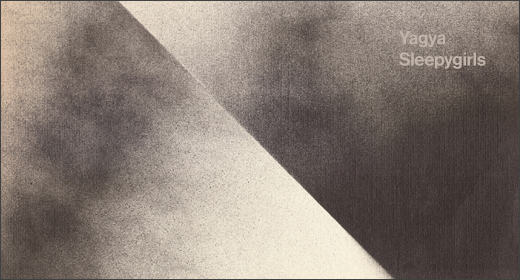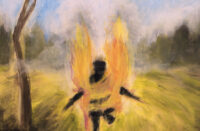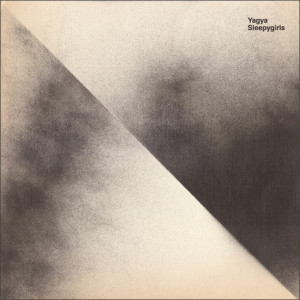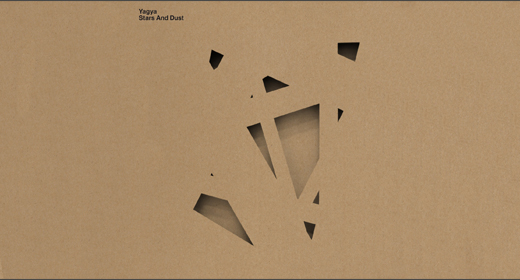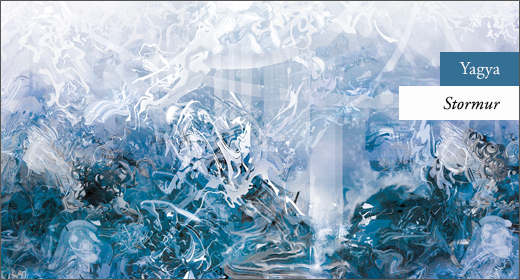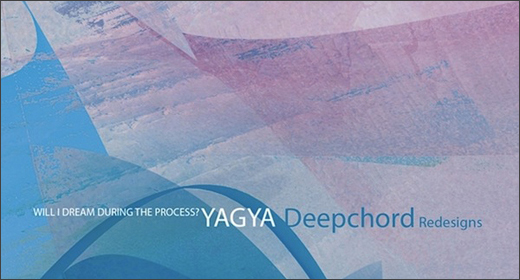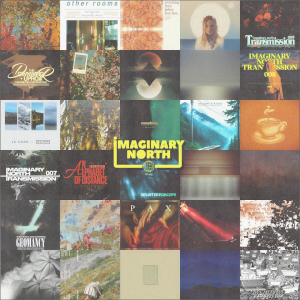A record that works exceptionally well as soothing background music, Sleepygirls is a propulsive, repetitive work characterized by the occasional burst of jazz and Japanese vocals.
Having a signature sound and a loyal following can often leave an artist in something of a quandary: keep plugging away in a similar vein to satisfy an existing demand, or try to vary and change things up with each new release. Yagya is one such artist that—with an avid following that has grown over a period of twelve years and five albums– has found that you’re somewhat damned if you do, damned if you don’t. His fourth album The Inescapable Decay of My Heart featured prominent vocals and a pop sensibility that Yagya foresaw might polarise opinion, resulting in Kilk releasing a generous double CD package that incorporated an entirely instrumental edition of the album.
That it is entirely possible to identify which Yagya album you are listening to in just a few seconds is quite something, and yet incomprehensibly, some people still describe his music as samey or homogeneous. With a real talent for an opening fanfare, for example, the ships’ horns of The Inescapable Decay of My Heart, cricket chirp of Rigning, or the indulgent, extended fade in of Will I Dream During The Process? instantly characterize each release. Similarly, every Yagya album has a signature characteristic that runs through every track, the vocals in the first instance, the humid, rain-drenched ambiance in the second, and the panoramic bombast in the third.
The exception to the rule has always arguably heen his debut album Rhythm of Snow, which is Yagya’s purest expression of his craft. But his fifth album Sleepygirls, this time for the venerable Delsin imprint, sees him very much returning to his roots. Fueled by a desire to create a record that works exceptionally well as soothing background music, the result is a propulsive, repetitive work characterized by the occasional burst of jazz and Japanese vocals.
In fact it’s tempting to say that across his five-album-strong canon, Yagya has produced some of the finest background music ever made. His carefully produced textures and atmospheres can become one with your surroundings, creating the perfect backdrop for working, socializing, relaxing, or even simply falling asleep. A Yagya album played in the background almost never never fails to pique the interest of guests, who always raise a question as to its identity.
Delsin have released Sleepygirls in two quite distinct editions: a triple LP in regular black, and gorgeous (but not particularly well-pressed) translucent smoke and black marbled vinyl, which features discrete versions of each track that have also been “specially mixed with random LFOs, sonic quirks and unique fingerprints making them the subtly different to the CD version”, plus an entirely mixed, non-stop journey for the CD/Digital edition.
Yagya has also avoided coloring the listener’s perception by generically numbering each Sleepygirls track, harking back to his debut album Rhythm of Snow, to which this album bears more than a passing resemblance. Fact is, there’s a reason that the CD edition runs as a continuous mix: there’s a unified sound across the whole album that makes it work well that way. The whole of Sleepygirls is characterized by the soft rush of wind blowing away that familiar Yagya humidity, heralding the approach of beige/grey skies pregnant with thunderstorms and driving rain that never actually arrives.
Though Sleepygirls is indeed an incredibly cohesive album with a seamless quality, there are several tracks that really stand out for one reason or another. “Sleepygirls 8,” for example, is unique in that it features powdery saxophone courtesy of Óskar Guðjónsson, an utterly enchanting sound that blends so perfectly with Yagya’s sound one can’t help but wish there were more. Perhaps a jazz influence might work as the next twist on the Yagya formula?
Then there are the very few tracks on Sleepygirls to feature vocals, and those still anxious about the employment of vocals on Sleepygirls needn’t fret. The talents of Natsuko Yanagimoto (one half of the Kyoto, Japan duo Rimacona) and Hatis Noit are used sparingly and with tremendous subtlety. Their presence adds a further touch of the enigmatic to Yagya’s already intoxicating brew. Yanagimoto’s dulcet tones weave their way like a perfume through the spray and mist of “Sleepygirls 4,” while Noit can be heard whispering softly early on in “Sleepygirls 9,” and delivers incandescent, multi-tracked harmonies in the closing minutes that are simply breathtaking.
Sleepygirls may not be as immediately distinctive an album as some previous works, but in Yagya’s case you can never have enough of a good thing. The finely crafted melodies, vocals and harmonics together with the billowing dub techno elements make Sleepygirls work equally well in the foreground as it does in the background and make it another essential entry in his discography. Miss at your peril.
Sleepygirls is available on Delsin.






